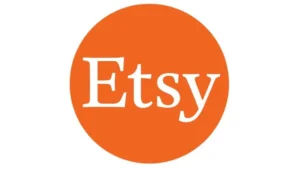Cryptocurrencies are rapidly gaining traction across global markets, not only as an investment vehicle but also as a legitimate method of payment. As digital assets like Bitcoin, Ethereum, and Litecoin become more mainstream, a growing number of companies—ranging from global tech giants to retail chains—are integrating cryptocurrency payment systems. This transition reflects the evolving landscape of commerce and the growing influence of blockchain technology in everyday transactions.
In this comprehensive guide, we’ll explore the top popular businesses accepting cryptocurrencies, analyze why they’re embracing this new payment frontier, and consider what it means for consumers and the broader market.
The Rise of Crypto in the Business World
Digital currencies offer a range of benefits that appeal to both businesses and consumers. These include reduced transaction costs, faster cross-border payments, enhanced security, and access to a broader customer base. As more people adopt cryptocurrencies, businesses are recognizing the value of accepting them to remain competitive and forward-thinking.
Let’s take a closer look at some of the most notable popular businesses accepting cryptocurrencies.
1. PayPal

In a landmark move in 2020, PayPal introduced support for cryptocurrencies on its platform, allowing users to buy, hold, and sell Bitcoin, Ethereum, Litecoin, and Bitcoin Cash. Additionally, U.S. customers can use crypto at millions of PayPal merchants worldwide through the “Checkout with Crypto” feature. This integration marked a significant shift in the perception of digital currencies, signaling mainstream financial endorsement.
Why it matters: PayPal’s involvement provides a major bridge between traditional finance and the crypto economy, increasing consumer confidence and adoption.
2. Etsy

While Etsy itself doesn’t have an official crypto payment system, individual sellers on the platform have the option to accept digital currencies like Bitcoin and Ethereum. Since 2018, crypto payments have gradually become more common among vendors, especially in categories like handmade art, jewelry, and collectibles.
Why it matters: Etsy’s peer-to-peer structure demonstrates how decentralized platforms can naturally align with decentralized currencies.
3. Pizza Hut

The legendary “Bitcoin Pizza Day” of 2010—when two pizzas were famously bought for 10,000 BTC—now has a fitting modern twist. In May 2022, Pizza Hut locations in Venezuela and other select countries began accepting cryptocurrencies like Bitcoin, Bitcoin Cash, and Litecoin through partnerships with crypto payment providers.
Why it matters: A global fast-food giant accepting crypto adds to the growing list of mainstream adoption in the food and beverage industry.
4. Twitch

Twitch, Amazon’s popular streaming platform for gamers and creators, accepts cryptocurrency payments for services like subscriptions and ads. Cryptocurrencies supported include Bitcoin, Ethereum, and USD Coin (USDC), among others.
Why it matters: Twitch’s young, tech-savvy audience is a natural fit for crypto, highlighting the appeal of digital currencies to Gen Z and millennials.
5. Microsoft

One of the first major tech firms to support cryptocurrency, Microsoft has accepted Bitcoin since 2014 for Xbox content, apps, and digital services. Users can fund their Microsoft accounts with Bitcoin through BitPay.
Why it matters: Microsoft’s early and continued adoption of crypto reflects its commitment to innovation and technological advancement.
6. AMC Theatres

AMC, one of the largest movie theater chains in the U.S., began accepting cryptocurrencies in 2022. Customers can purchase movie tickets and concessions using Bitcoin, Ethereum, Litecoin, Dogecoin, and Shiba Inu, among others.
Why it matters: This move positioned AMC as a forward-looking company, appealing to younger audiences and crypto enthusiasts.
7. Starbucks

Starbucks does not directly accept cryptocurrencies at the register, but it allows customers to convert digital currencies to U.S. dollars using third-party apps like Bakkt and spend them via linked digital wallets. This creates a seamless experience for crypto holders looking to make everyday purchases.
Why it matters: Starbucks’ integration showcases how traditional businesses can accommodate crypto users without altering their existing payment infrastructure.
8. JP Morgan

JP Morgan, a leading force in global finance, initially held a skeptical stance toward cryptocurrencies. However, the firm has since launched its own digital token, JPM Coin, and now supports institutional clients in processing crypto-related transactions.
Why it matters: The involvement of legacy financial institutions like JP Morgan signals increased legitimacy and long-term viability of digital assets.
9. Amazon

While Amazon has not yet implemented direct cryptocurrency payments, it allows the use of crypto through third-party platforms and gift card providers. Additionally, Amazon Web Services (AWS) has been exploring blockchain integration for various enterprise applications.
Why it matters: Amazon’s sheer market influence makes its potential move into crypto payments one of the most anticipated developments in the space.
10. Rakuten

Often referred to as the “Amazon of Japan,” Rakuten has been actively involved in the cryptocurrency space since launching its own exchange and enabling crypto payments through Rakuten Pay. Customers can use Bitcoin and other digital assets to pay for goods and services.
Why it matters: Rakuten exemplifies how e-commerce leaders can adopt end-to-end crypto ecosystems—from trading to spending.
Other Notable Businesses Accepting Cryptocurrencies
Beyond the companies mentioned above, several other well-known brands are joining the movement. These include:
-
Newegg – One of the first electronics retailers to accept Bitcoin.
-
Overstock – A pioneer in crypto acceptance since 2014.
-
Home Depot – Accepts crypto payments via Flexa at select locations.
-
Whole Foods – Enables crypto payments through the SPEDN app.
-
Expedia – Supports cryptocurrency for travel bookings via its platform.
Why Are Businesses Accepting Cryptocurrencies?
1. Lower Transaction Costs
Cryptocurrency transactions can significantly reduce costs by eliminating intermediaries like banks and credit card companies. Businesses benefit from reduced processing fees and fewer chargebacks.
2. Fast, Borderless Transactions
Unlike traditional banking systems that may take days to process cross-border payments, cryptocurrency enables instant and secure international transactions. This is especially advantageous for e-commerce businesses serving global customers.
3. Access to a Broader Market
By accepting digital currencies, businesses open themselves to a new, growing demographic—crypto holders—who may prefer spending their digital assets rather than converting them into fiat.
4. Enhanced Security and Transparency
Blockchain technology offers secure, immutable transaction records. This not only increases trust but also helps prevent fraud and ensures accountability in financial dealings.
5. Brand Positioning and Innovation
Accepting cryptocurrencies positions a company as innovative and adaptable. It sends a message to customers that the business is staying ahead of technological trends and embracing digital transformation.
Challenges and Considerations
While the benefits are clear, integrating cryptocurrency payments does come with challenges:
-
Volatility: The price of cryptocurrencies can fluctuate dramatically, which may pose a risk to businesses that do not immediately convert to fiat.
-
Regulatory Uncertainty: The legal landscape surrounding cryptocurrency is still evolving in many countries.
-
Technical Integration: Businesses must ensure they have secure and user-friendly systems in place to process crypto transactions effectively.
However, with the rise of crypto payment processors like BitPay, Coinbase Commerce, and Flexa, many of these hurdles can be efficiently managed.
Conclusion
As digital currencies continue to reshape the global financial landscape, a growing number of popular businesses are accepting cryptocurrencies to adapt to evolving consumer preferences. From PayPal and Microsoft to Starbucks and AMC Theatres, the integration of crypto into mainstream commerce is no longer a future concept—it’s happening now.
For consumers, this means increased flexibility, faster transactions, and access to more secure payment options. For businesses, it represents an opportunity to cut costs, expand globally, and align with the digital economy.
FAQ’s
Which companies accept cryptocurrency as payment in 2025?
Many companies now accept cryptocurrency as payment in 2025. Some of the most notable businesses include PayPal, Microsoft, Starbucks, AMC Theatres, Pizza Hut, Etsy (via individual sellers), Twitch, Rakuten, and Overstock. These businesses allow customers to pay using Bitcoin, Ethereum, Litecoin, and other digital currencies.
Why are businesses accepting cryptocurrency?
Businesses accept cryptocurrency because it offers lower transaction fees, faster global payments, and improved security. It also enables access to a broader customer base and enhances brand perception by showcasing innovation and adaptability to digital trends.
How do companies accept cryptocurrency payments?
Companies accept cryptocurrency payments through crypto payment processors such as BitPay, Coinbase Commerce, Flexa, or by integrating wallet-based systems like MetaMask or Bakkt. These tools convert crypto into fiat instantly or allow businesses to hold digital assets.

